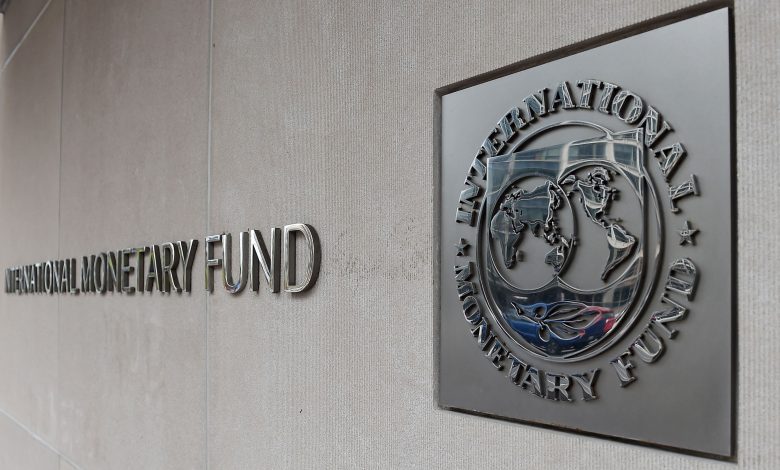Rising interest rates affecting housing delivery – IMF | Prestige Real Estate News
Rising interest rates affecting housing delivery – IMF

 ADVERTISEMENT
ADVERTISEMENTThe International Monetary Fund has stated that central banks’ decision to hike interest rates to curb inflation has been impeding housing market growth and mortgage accessibility.
In a recent release of its Global Economic Outlook at the International Monetary Fund/World Bank Spring Meetings titled “Steady but slow: Resilience amid divergence”, the fund noted that this had led to a significant surge in house prices and mortgage rates.
It explained that since the beginning of the current hiking cycle, house prices remained elevated at the end of 2023 in most countries and households had started to feel the pinch of monetary policy.
Since late 2021, Central banks around the world have raised policy rates significantly to restore price stability.
Many analysts anticipated that increasing interest rates would lead to a slowdown, or even a recession, but despite some economies experiencing a deceleration, global growth has remained steady.

In Nigeria, the monetary policy committee led by CBN Governor, Olayemi Cardoso, raised the benchmark interest rate by six per cent to 24.75 per cent in two meetings to tame inflation.
This followed seven straight rate hikes under former CBN Governor, Godwin Emefiele.
Meanwhile, the country’s inflation accelerated to 33.2 per cent in March.
The IMF has been investigating the impact of a particular policy on mortgage and housing markets in different countries.
The report highlights that the longer high interest rates are maintained, the more likely it is that households will feel financial pressure, even in cases where they have been relatively protected so far.
The report read, “As inflation converges toward target levels and central banks pivot toward policy easing in many economies, a tightening of fiscal policies aimed at curbing high government debt, with higher taxes and lower government spending, is expected to weigh on housing growth.
“Monetary policy has greater effects where fixed-rate mortgages are not common, home buyers are more leveraged, national household debt is high, housing supply is more restricted, and house prices have recently been overvalued.
“Moreover, shifts in mortgage and housing markets since the global financial crisis and during the COVID-19 pandemic may have limited the drag of higher policy rates up to now in several countries. The risk that the cooling effects of past monetary tightening are yet to come should be taken seriously where fixed-rate mortgages have short fixation periods, especially if households are heavily indebted. The longer rates are kept high, the greater the likelihood that households will feel the pinch, even where they have so far been relatively sheltered.”
It further said increased borrowing costs were likely to affect national-level housing supply and leaving rates higher for longer could be a greater risk.
“Monetary policy affects economic activity through housing. The strength of these housing channels varies significantly across countries and has weakened recently in several economies. These findings hold implications for macroprudential and monetary authorities.
“House prices have evolved very differently across countries amid monetary policy tightening. Since the beginning of the current hiking cycle, nominal house prices have declined in about a third of the countries in the sample considered here (a rare occurrence) but continued to rise elsewhere,” it added.
According to the report, house prices remained elevated at the end of 2023 in most countries, as household consumption has evolved differently across countries, indicating that some households have started to feel the pinch of monetary policy.
“The national-level housing supply is now likely to be more elastic as a result of migration from densely populated urban areas to less dense rural or suburban areas during the pandemic years. Most central banks have made significant progress toward their inflation targets.
“It could follow from the discussion that if transmission is weak, erring on the side of too much tightening is always less costly. However, overtightening, or leaving rates higher for longer, could nevertheless be a greater risk now. While fixed-rate mortgages have indeed become more common in many countries, fixation periods are often short,” it further noted.
It stated that as rates on those mortgages reset, monetary policy transmission could suddenly turn more effective and thereby depress consumption.
The international lender added that the sharp increase in house prices amid the pandemic had also made certain markets susceptible to overvaluation.
“Although central banks already incorporate this possibility into their decisions, the effects on consumption could still be larger than expected. Financial instability could also follow if defaults rise abruptly. This is especially true in countries where households are highly indebted or where bankruptcy laws favour borrowers. The sharp rise in house prices during the pandemic has also rendered some markets overvalued.
“Looking ahead to the next phase of tightening, regulatory bodies should consider implementing additional tools like debt-service-to-income ratio caps, if not already enacted, to mitigate these unintended financial stability consequences of monetary policy. In summary, the longer rates are kept high, the greater the likelihood that households will feel the pinch, even where so far they have been relatively sheltered,” the fund asserted.
The IMF’s position aligned with recent warnings by housing experts that higher interest rates on loans would hamper housing development.
The Chief Executive Officer of Cromwell Professional Services International Limited, Sola Enitan, asserted in an interview with The PUNCH that higher interest rates would increase borrowing costs for potential homebuyers.

He claimed, “Mortgage rates are likely to rise, making it more expensive for individuals to finance home purchases. Existing homeowners with adjustable-rate mortgages or variable interest rates may experience increased mortgage payments, potentially leading to financial strain for some.”
- PUNCH







